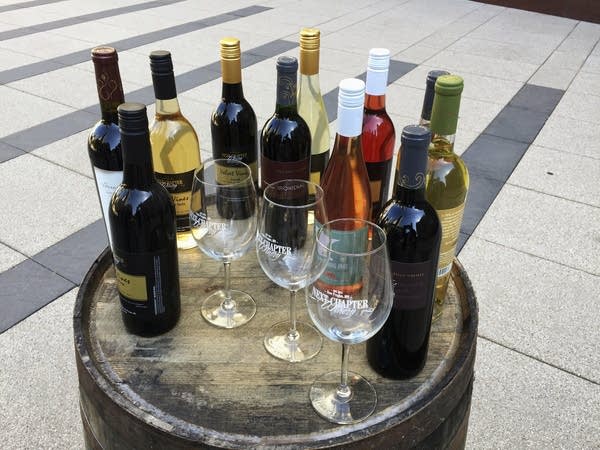Judge allows Minnesota wineries to use out-of-state grapes

Wines from the Next Chapter Winery, of New Prague, Minn., and Alexis Bailly Vineyard, of Hastings, Minn., are displayed at a news conference outside the federal courthouse in Minneapolis in March 2017.
Steve Karnowski | AP Photo 2017
Go Deeper.
Create an account or log in to save stories.
Like this?
Thanks for liking this story! We have added it to a list of your favorite stories.


